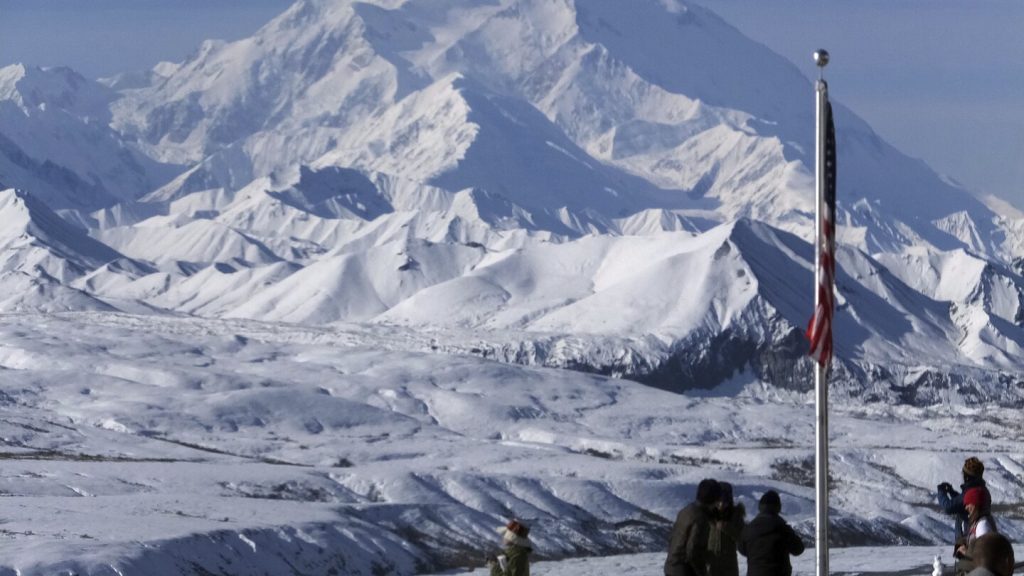A Mountain’s Name and the Battle for Cultural Identity
The Alaska Legislature has made a strong statement by unanimously passing a resolution urging President Donald Trump to reverse his decision to rename North America’s tallest peak, Denali, back to Mount McKinley. The resolution, which passed with a 19-0 vote in the state Senate and a 31-8 vote in the House, reflects the deep cultural and historical significance of the name Denali to the people of Alaska. For many Alaskans, especially Alaska Natives, Denali is more than just a name; it is a symbol of their heritage, identity, and connection to the land. The resolution is a bipartisan call to honor the state’s history and the preferences of its residents, who have overwhelmingly supported the name Denali.
The Cultural and Historical Significance of Denali
At the heart of this debate is the name Denali, which means “the high one” in the Athabascan language. The name was given to the mountain by the Koyukon Athabascan people, an indigenous tribe that has lived in Alaska for thousands of years. Rep. Maxine Dibert, a Democrat from Fairbanks and a Koyukon Athabascan herself, sponsored the resolution. She emphasized that Denali is not just a mountain but a cornerstone of Alaska’s history, a tribute to its diverse culture, and a testament to the people who have cherished the land for millennia. For Alaska Natives, the name Denali represents a profound spiritual and cultural connection to the mountain and the region. It is a name that has been passed down through generations, long before the arrival of European settlers.
The Historical Context of the Name Change
The debate over the mountain’s name is not new. In 1896, a prospector named William A. Dickey named the mountain Mount McKinley in honor of President William McKinley, who was from Ohio and had never set foot in Alaska. Although the name McKinley was formally recognized by the U.S. government, it was always a point of contention for many Alaskans. For decades, state leaders and Alaska Natives advocated for the name to be changed back to Denali, a name that resonated with the state’s indigenous roots. Their efforts finally paid off in 2015 when the Obama administration officially changed the name to Denali. The decision was seen as a victory for Alaska’s cultural heritage and a recognition of the state’s diverse history.
The Trump Administration’s Reversal and the State’s Response
However, the name change was short-lived. On his first day in office, President Donald Trump signed an executive order calling for the name to revert to Mount McKinley. Trump justified the decision by stating that he wanted to “restore the name of a great president, William McKinley, to Mount McKinley, where it should be and where it belongs.” He also praised McKinley’s contributions to the country, particularly through tariffs and his leadership. The Interior Department announced that it was working to implement the renaming order, despite the fact that state leaders considered the matter far from settled.
The Alaska Legislature’s resolution is a direct response to Trump’s decision. Lawmakers argue that the name Denali is not just a preference but a deeply ingrained part of Alaska’s identity. They also point out that the decision to change the name back to McKinley was made without consulting the state’s residents or acknowledging the cultural significance of Denali. The resolution reflects the bipartisan support for retaining the name Denali, as lawmakers from both parties came together to voice their opposition to the federal government’s decision.
The Bipartisan Support for Denali
The resolution’s passage highlights the strong bipartisan support for the name Denali. In the Senate, all 19 members voted in favor of the measure, while in the House, 31 out of 39 members supported it. This overwhelming support demonstrates that the issue transcends political divides and speaks to a shared sense of pride and identity among Alaskans. House Speaker Bryce Edgmon, an independent from Dillingham, emphasized that the name Denali is of great importance to Alaska Natives and to everyone across the state. He stated, “It is clear from the bipartisan support in the legislature that Alaskans should decide.”
The Broader Implications of the Debate
The debate over the name of North America’s tallest peak is more than just a symbolic gesture; it reflects broader issues of cultural identity, indigenous rights, and the role of government in preserving history. For Alaska Natives, the name Denali is a reminder of their ancestral connection to the land, a connection that predates the arrival of European settlers. The push to retain the name Denali is also a push for recognition and respect for the state’s indigenous communities. At the same time, the debate highlights the tension between federal authority and state autonomy, as well as the importance of involving local communities in decisions that affect their cultural heritage.
In the end, the resolution passed by the Alaska Legislature is a powerful statement about the importance of preserving cultural identity and honoring the state’s rich history. While the federal government’s decision to revert the name to Mount McKinley has sparked controversy, the bipartisan support for Denali in Alaska makes it clear that the name holds a special place in the hearts of Alaskans. Whether the resolution will influence President Trump to reconsider his decision remains to be seen, but one thing is certain: the name Denali is more than just a label—it is a symbol of Alaska’s identity, history, and future.












